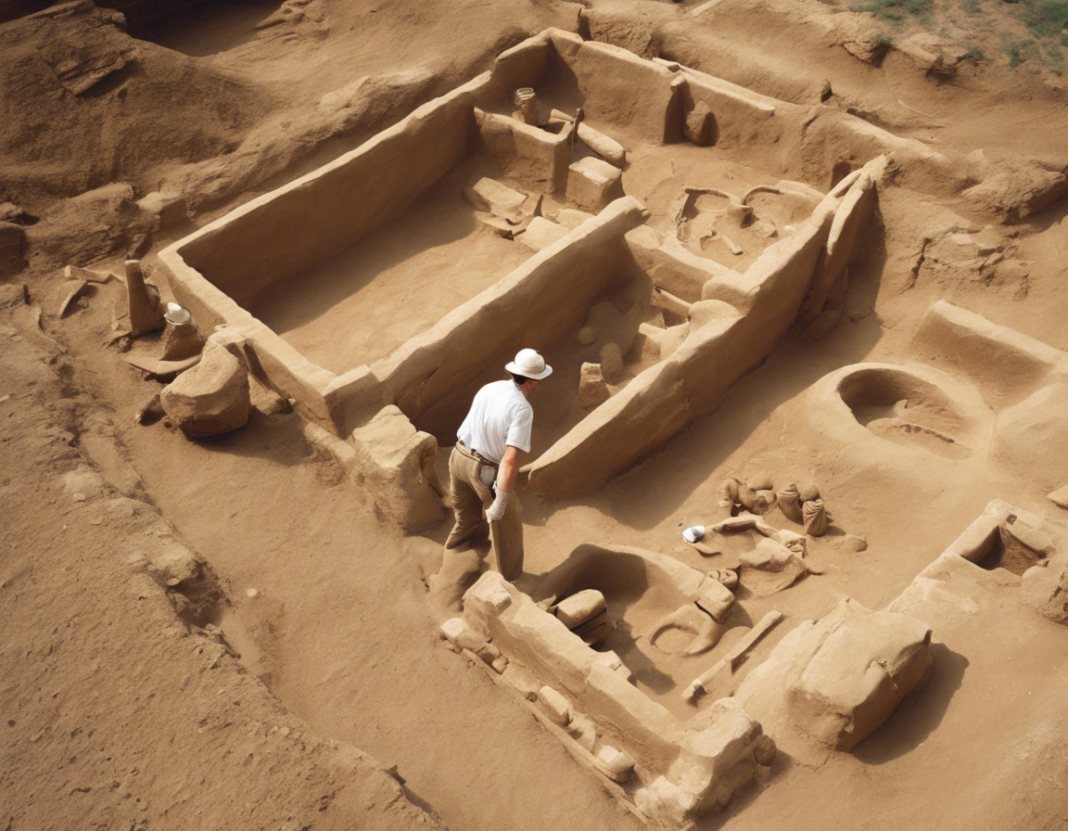Are you fascinated by ancient cultures, intrigued by historical artifacts, and excited about uncovering the mysteries of the past? If so, a career as an archaeologist might be the perfect choice for you. Archaeology is a field that combines scientific research, cultural preservation, and a deep love for history. But how exactly do you become an archaeologist? What are the paths you can take to enter this exciting profession, and what skills and qualifications do you need? In this comprehensive guide, we will explore the various paths to becoming an archaeologist, the different specializations within the field, the skills required, and the job outlook for aspiring archaeologists.
Why Choose a Career in Archaeology?
Before delving into the specifics of how to become an archaeologist, let’s first understand why this career path is so appealing to many. Archaeology offers a unique opportunity to explore the past, piece together historical narratives, and contribute to our understanding of human civilization. Through fieldwork, laboratory analysis, and research, archaeologists uncover artifacts, study ancient structures, and interpret the lifestyles of past societies. It is a blend of science, history, anthropology, and detective work, making it both intellectually stimulating and rewarding.
Educational Paths to Becoming an Archaeologist
1. Undergraduate Degree
The first step towards becoming an archaeologist is obtaining a bachelor’s degree in archaeology or a related field, such as anthropology, history, or classical studies. Archaeology programs typically include courses in archaeological methods, artifact analysis, cultural heritage preservation, and fieldwork techniques. Some programs also offer specializations in areas like underwater archaeology, bioarchaeology, or archaeological conservation.
2. Field Experience
Hands-on experience is crucial for aspiring archaeologists. Many undergraduate programs include fieldwork opportunities where students can participate in excavations, surveys, and laboratory work. Additionally, volunteering with archaeological projects or internships at museums, cultural heritage sites, or research institutions can provide valuable practical experience.
3. Advanced Degrees
While a bachelor’s degree is sufficient for some entry-level positions in archaeology, pursuing an advanced degree, such as a master’s or doctoral degree, can open up more opportunities for specialization and research. Advanced degrees are particularly important for those interested in academic archaeology careers, leadership roles in cultural heritage management, or specialized fields like zooarchaeology or dendrochronology.
4. Specializations in Archaeology
Archaeology is a diverse field with various specializations that cater to different interests and career goals. Some common specializations include:
– Historical Archaeology: The study of past societies with written records.
– Classical Archaeology: Focus on the civilizations of ancient Greece and Rome.
– Maritime Archaeology: Study of underwater cultural heritage.
– Bioarchaeology: Analysis of human remains to understand past populations.
– Landscape Archaeology: Examination of the interaction between humans and their environments.
– Public Archaeology: Engaging with communities and promoting archaeology to the public.
Skills and Qualities of Successful Archaeologists
1. Analytical Skills
Archaeologists must be adept at analyzing artifacts, interpreting data, and drawing conclusions based on evidence. Strong critical thinking and problem-solving skills are essential for reconstructing the past from fragmentary remains.
2. Fieldwork Proficiency
Fieldwork is a fundamental aspect of archaeology, requiring physical endurance, attention to detail, and the ability to work in varying environmental conditions. Excavation skills, survey techniques, and proper artifact handling are vital for conducting successful fieldwork.
3. Cultural Sensitivity
Archaeologists work with culturally sensitive materials and historical sites, necessitating respect for indigenous perspectives, ethical conduct, and a commitment to preserving cultural heritage.
4. Communication Skills
Effective communication is crucial for presenting research findings, collaborating with colleagues, engaging with local communities, and educating the public about the importance of archaeology.
5. Research Abilities
Archaeologists engage in research at every stage of their careers, from formulating research questions to publishing scholarly articles. Proficiency in research methodologies, data analysis, and academic writing is key to advancing in the field.
Job Outlook and Career Opportunities in Archaeology
The job market for archaeologists varies depending on factors such as geographic location, specialization, and sector. Archaeologists work in a range of settings, including government agencies, cultural resource management firms, museums, universities, and research organizations. Some potential career paths in archaeology include:
- Cultural Resource Management: Assessing and preserving archaeological sites for compliance with regulations.
- Museum Curation: Researching, curating, and interpreting artifacts for museum exhibits.
- Academic Research: Conducting original research, teaching courses, and publishing scholarly works.
- Heritage Conservation: Working to protect and manage cultural heritage sites for future generations.
- Consulting: Providing expertise on archaeological matters for development projects, environmental assessments, or legal cases.
The job outlook for archaeologists is competitive, with opportunities often tied to government funding, development projects, and cultural resource legislation. Networking, gaining diverse experience, and staying current with advancements in the field can enhance employment prospects for aspiring archaeologists.
Frequently Asked Questions (FAQs) About Becoming an Archaeologist
1. Do I need to study archaeology at the undergraduate level?
While a degree in archaeology is beneficial, many archaeologists come from diverse academic backgrounds, including anthropology, history, geography, and geology. What is essential is gaining field experience and research skills relevant to the field.
2. How important is fieldwork in archaeology?
Fieldwork is a cornerstone of archaeological practice, providing firsthand experience in excavation techniques, artifact recovery, and site interpretation. Fieldwork opportunities offer practical skills that are invaluable for a career in archaeology.
3. What are the technology advancements in archaeology?
Technology has revolutionized archaeology, with advancements such as LiDAR for landscape mapping, 3D modeling for artifact analysis, and GIS for spatial mapping. Digital tools have enhanced data recording, preservation, and visualization in archaeological research.
4. How can I specialize in a particular area of archaeology?
Specializing in a specific area of archaeology involves pursuing advanced degrees, conducting focused research, and gaining practical experience in your chosen specialization. Networking with experts in the field and attending conferences can also help you narrow down your focus.
5. What is the role of archaeologists in cultural heritage preservation?
Archaeologists play a vital role in preserving cultural heritage by documenting and protecting archaeological sites, engaging with local communities, advocating for heritage conservation, and promoting public awareness of the significance of cultural resources.
In conclusion, pursuing a career in archaeology offers a rewarding journey of discovery, exploration, and preservation of our shared human history. By following the educational paths, acquiring essential skills, exploring diverse specializations, and seizing job opportunities in the field, aspiring archaeologists can embark on a fulfilling and impactful career uncovering the mysteries of the past.









